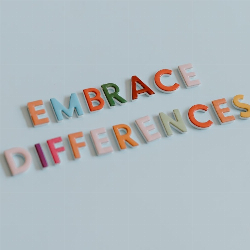Autism
What is autism?
Autism is a disease that affects children and remains throughout adulthood. It is mainly characterized by a difficulty in forming normal social interactions and in communication. Boys are particularly affected: boys are 4 times more likely than girls to have autism.
What are the signs of autism?
People with autism generally exhibit withdrawn behavior and have a difficulty assimilating social behavior. Restricted and repetitive behavior and difficulties with communication and social interaction are manifestations of autism.
Autism, now, can be detected in infants (from 6 to 18 months) with the presence of the early signs of autism. Here are some of the symptoms that are used to diagnose autism in infants:
- Child too calm
- Child rarely smiles
- Movement coordination and motor problems
- No stress or curiosity about people outside the family
- Limited or non-existent speech
- Fixed gaze on certain objects or elements whose movements are repeated
- Phobias
- Intellectual disability (ID)
What are the different forms of autism?
There are 3 different forms of autism-related diseases:
Infantile autism: the disease of autism characterized by the onset of difficulties with behavior, communication, and social interactions in an individual before the age of 30. This disorder persists into adulthood.
Asperger's syndrome: this is a disease for which patients have behavior disorders. Socially withdrawn behavior, difficulty in socializing, and coordination problems are characteristics. However, patients are not intellectually disabled and often have an excellent memory. They may be of above average intelligence and can sometimes be gifted. But their illness manifests itself in a very "stuffy" language, a particular speech, an inability to distinguish emotions from others and a great sensitivity to noises and what surrounds them. Habits, routines, and rules reassure them.
Atypical autism: a developmental disorder that is called atypical because it does not fully correspond to the definition of "classical" autism. Some symptoms may be absent, or the autism disease may occur later in life, making it atypical.
What are the origins of autism?
Autism is a disease with genetic origins. The transmitted genetic mutation is believed to come from the genes whose role is to form the nervous system. Certain chemical components that allow the brain to function optimally are also believed to be affected in autism. This would be the case for glutamate, GABA and serotonin.
What are the treatments for autism?
There is no cure for autism yet, but there are several treatment measures that can be taken to manage the condition, help the individual become less socially withdrawn, and improve speech.
Since autism affects each individual uniquely, autism management is personalized according to the individual's disorders and needs. A home-therapy plan can be established for parents to use with their child to further improve certain symptoms and manage the condition.
Several specialists may take part in the health care for an individual with autism: speech therapist, occupational therapist, pyshical therapist, psychiatrist / psychologist...
Therapy for speech/langauge and motor skills may be carried out in hospitals, the home, out-patient clinics, or specialized clinics.
Similarly, school integration will be a sought-after step. For some autistic children, a classroom assistant will follow them and help them adapt to the school environment.
Published Aug 21, 2019



